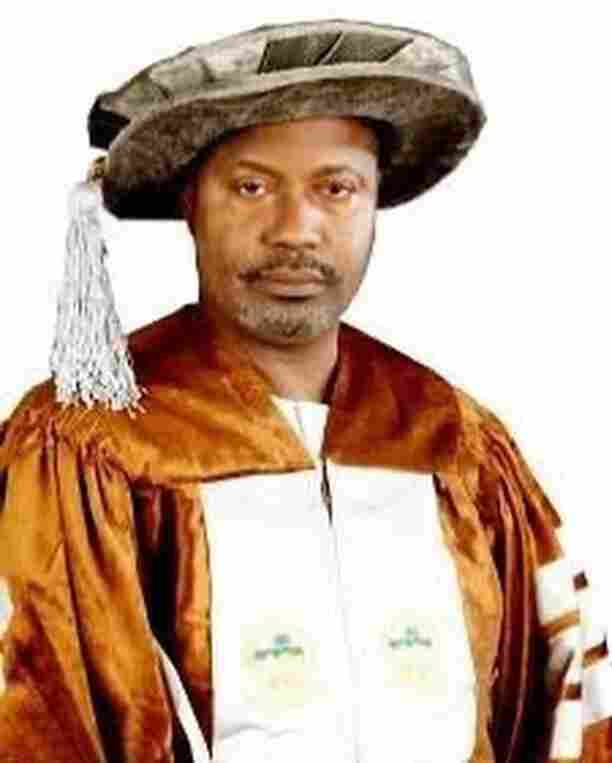The newly appointed Executive Secretary (ES) of the National Universities Commission (NUC), Professor Abdullahi Yusufu Ribadu, is not a new name in academia and in NUC. His appointment by President Bola Tinubu on Friday, December 6, 2024, re-echoes the name of a man who has made landmark achievements in university administration.
Background
Born on September 2, 1960, Prof. Ribadu hails from Fufore in Adamawa State, North East Nigeria.
After completing his elementary education in 1973, he proceeded to Mubi in Adamawa, where he completed his secondary school education and earned the West African School Certificate (WASC) between 1973 and 1978.
He moved from Adamawa to Kaduna State to further his studies, including attending the School of Basic Studies at Ahmadu Bello University (ABU), Zaria. In 1979, he gained admission into the same institution to study Veterinary Medicine, graduating in 1984.
He returned to Ahmadu Bello University for a Master’s Degree from 1986 to 1988, specializing in Theriogenology, an area of veterinary medicine that focuses on reproductive medicine and surgery.
Thereafter, he pursued a PhD at the University of Liverpool, United Kingdom, under the Commonwealth Scholarship in 1990.
He later received a two-year Postdoctoral Fellowship from the Japan Society for the Promotion of Science (JSPS) at Rakuno Gakuen University, Ebetsu, Hokkaido, Japan.
In October 2002, Prof Abdullahi Ribadu was promoted to a full Professor of Veterinary Reproduction by the University of Maiduguri.
Career
Between 1984 and 1985, Abdullahi Yusufu Ribadu served in Ilorin, Kwara State, during his mandatory National Youth Service Corps (NYSC) at the Lower Niger River Basin and Rural Development Authority.
Upon completing his service, he joined the Department of Veterinary Surgery and Reproduction at the University of Maiduguri, Borno State, as an Assistant Lecturer in September 1985. He rose through the ranks to become a full professor.
Apart from holding several administrative positions at UNIMAID, such as being Head of Department and Dean of Faculty, Prof. Ribadu has been a visiting professor at various universities within and outside Nigeria.
In April 2004, Prof. Ribadu was appointed Vice-Chancellor of the Federal University of Technology, Girei, Yola, now known as Modibbo Adama University, Adamawa State.
After his tenure as Vice-Chancellor at Modibbo Adama University, he served as an external assessor and examiner at institutions including the University of Ibadan, Usman Danfodiyo University, ABU, and the National Universities Commission (NUC).
When the Jigawa State University in Kafin Hausa was established on May 13, 2013, Prof Abdullahi Ribadu was appointed its pioneer Vice-Chancellor by Governor Sule Lamido in December of the same year. The university was later renamed Sule Lamido University by the Jigawa State House of Assembly in December 2014. Ribadu served as VC from December 2013 to December 2018.
Before his appointment as VC of Sule Lamido University, he was the Chairman of the Committee on Monitoring of Private Universities (COMPU) at the National Universities Commission between June 2009 and November 2011.
He has also been a visiting professor at Nigerian Turkish Nile University (NTNU), Abuja; the University of Abuja; and Guru Angad Dev Veterinary and Animal Sciences University (GADVASU), Ludhiana, Punjab, India.
He served as the Secretary-General of the Association of West African Universities (AWAU).
In December 2024, Ribadu was appointed Executive Secretary of NUC, a position he is expected to hold until 2029.
Publications
He has numerous published works, including his notable study, “Ultrasonography and Endocrinology of Ovarian Cysts in Cattle.”
Some of his research papers and co-authored works include:
- “Changes in the Serum Proteins, Hematological and Some Serum Biochemical Profiles in the Gestation Period in Sahel Goats”
- “Bovine Reproductive Ultrasonography: A Review” (published in the Journal of Reproduction and Development)
- “Relationship of Maternal Plasma Progesterone and Estrone Sulfate to Dystocia in Holstein-Friesian Heifers and Cows” (published in the Journal of Veterinary Medical Sciences)
- “Estrone Sulfate Concentrations, Calf Birth Weight and Viability, and Placental Weight and Expulsion in Dairy Cattle with Different Gestation Lengths”
He is also an editorial board member of several journals, including the Sahel Journal of Veterinary Sciences.
Professional Memberships & Recognition
Professor Ribadu is a member of various professional bodies within Nigeria and globally. These include:
- Fellow, College of Veterinary Surgeons of Nigeria (FCVSN)
- Member, Nigerian Institute of Management (MNIM)
- Honorary Fellow, Nigerian Institution of Agricultural Engineers (FNIAE)
- Fellow, Global e-Policy and e-Government Institute, Sungkyunkwan University, South Korea
- Fellow, Institute for Government Research and Leadership Technology
He is also a member of the TETFund’s National Research Fund Screening and Monitoring Committee.
Personal Life
Professor Ribadu speaks Hausa, Fulfulde, and English fluently. He is married and blessed with three children.
Join EdubaseNG WhatsApp Channel to get the latest education & student loan tips
Join our Telegram Channel to get the latest news about Student Loans & Education News.
Are you a stakeholder in education? You can become our guest writer. Write to us using our our email address here




